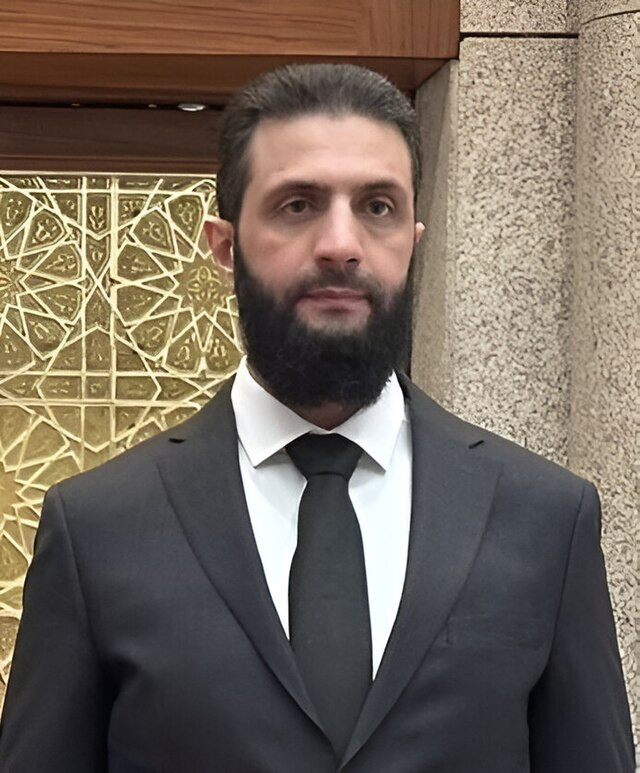Syria's interim leader, Ahmed al-Sharaa, launched a national dialogue on Tuesday, pledging a democratic transition and a unified state following the fall of former President Bashar al-Assad. Addressing a gathering in Damascus, al-Sharaa called for national unity and announced the formation of a transitional justice committee.
"I urge all Syrians to stand united and hand in hand to heal the wounds and wash away the pains after decades of dictatorship," al-Sharaa said. "Over the past two months, we have worked on pursuing those who committed crimes against Syrians." He also reaffirmed that the state must have exclusive control over armed forces, a critical issue in a country long divided by warring factions.
The meeting, held at the presidential palace, marked the most significant political gathering since Assad's ouster. Hayat Tahrir al-Sham (HTS), the Islamist group now in power, framed the dialogue as a milestone in Syria's transition, though concerns over its inclusivity persist. The event was organized with little advance notice, and some opposition figures, including exiled politician George Sabra, said they were unable to attend due to short timelines.
Approximately 600 participants took part in discussions on constitutional reform, transitional justice, institutional rebuilding, economic recovery, personal freedoms, and the role of civil society. While the conference's recommendations are non-binding, its outcome is being closely monitored by the international community, which has linked the potential lifting of sanctions to the credibility of the transition process.
Foreign governments, including the United States and European nations, have maintained sweeping sanctions on Syria, many of which were imposed during Assad's rule. Western and Arab capitals have indicated that full normalization with Syria's new leadership will depend on whether the transition is inclusive of all ethnic and religious groups.
Concerns remain among Syria's minority communities-including Kurds, Christians, Druze, and Alawites-who question whether the new government will guarantee their rights. A coalition of Kurdish parties condemned what they called "token representation" at the conference. In a joint statement, 35 Kurdish-led groups said, "Conferences with token representation ... are meaningless, worthless, and will not contribute to finding real solutions to the country's ongoing crisis."
HTS, which previously had ties to al-Qaeda before severing them, has attempted to rebrand itself as a governing entity, with al-Sharaa advocating coexistence. However, skepticism lingers. Some Syrian activists and analysts argue that the transition is being rushed due to international pressure, with the new government expected to take power by March 1.
"The national dialogue should have been a much longer process, and even a much more inclusive process," said Labib Nahhas, director of the Syrian Association for Citizens' Dignity. "But because the international community is waiting to see what kind of transitional government will come out of this, it didn't give Syrians enough space and time to do it."
Inside the summit, participants debated critical issues, with discussions taking place behind closed doors. A moderator allocated two minutes for each speaker, and attendees were restricted from removing documents from the conference hall. The structured format sparked concerns about whether public input would carry significant weight in shaping Syria's new government.
Hanin Ahmad, an activist from Homs, described the dialogue as an important first step but stressed the need for sustained engagement. "Our eyes remain on two things: that this discussion needs to be an ongoing process, and that we need to know how these discussions will be used," she said.
Adnan Tarabishy, a Syrian businessman who participated in the economic session, noted the symbolic significance of the gathering. "We're in the presidential palace, and the guys who were here for 54 years are outside. It's an unbelievable feeling. We feel we're trying to rebuild Syria from scratch," he told Reuters.
While some attendees expressed optimism, others voiced doubts about the ability of the new leadership to deliver genuine political reforms. Orthodox Archbishop Elia Tohme described the summit as "too early to judge" but said he would wait to see concrete steps taken.
International actors remain divided on their approach to Syria's new government. The U.N. was not involved in organizing the summit, and foreign diplomats in Syria were not invited. The U.S. and EU have maintained sanctions on HTS as a designated terrorist organization, complicating Syria's path to international recognition.
Syria's Foreign Minister Asaad al-Shibani criticized the continued sanctions, arguing that they were being used "as a means of pressure on the will of the Syrian people." His remarks were met with applause from some attendees, with one woman standing up and shouting, "Thank God, the People's Palace has returned to the people!"




